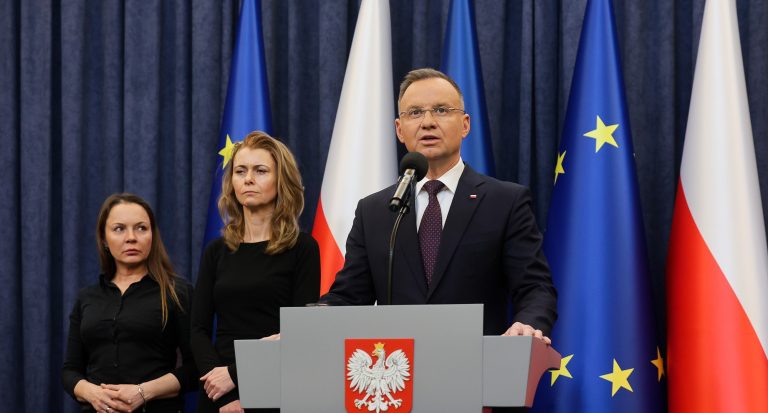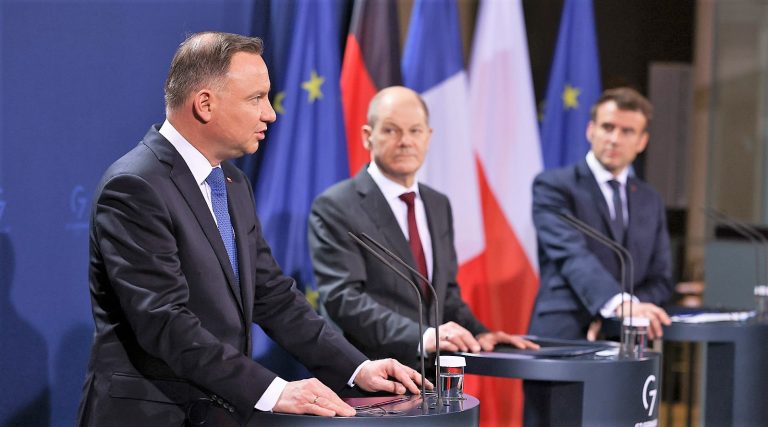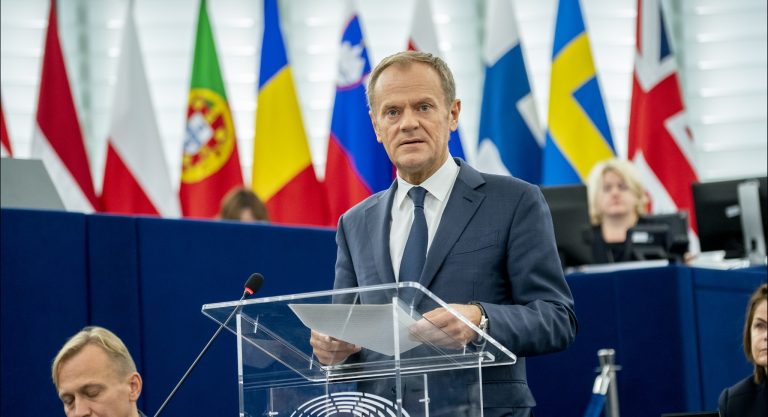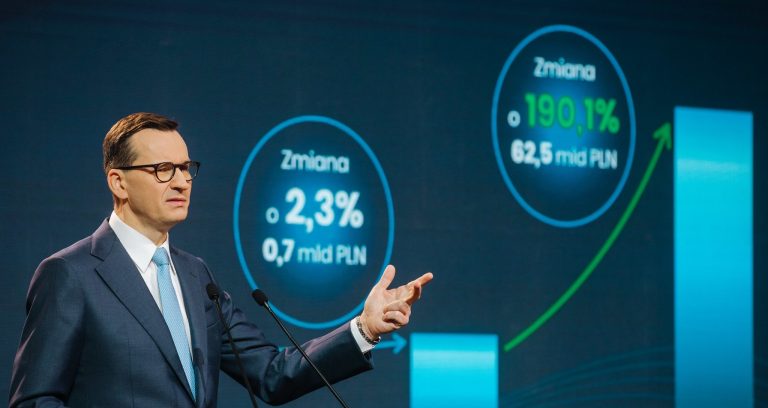Poland implements controls and deploys army to Slovak border to tackle irregular migration
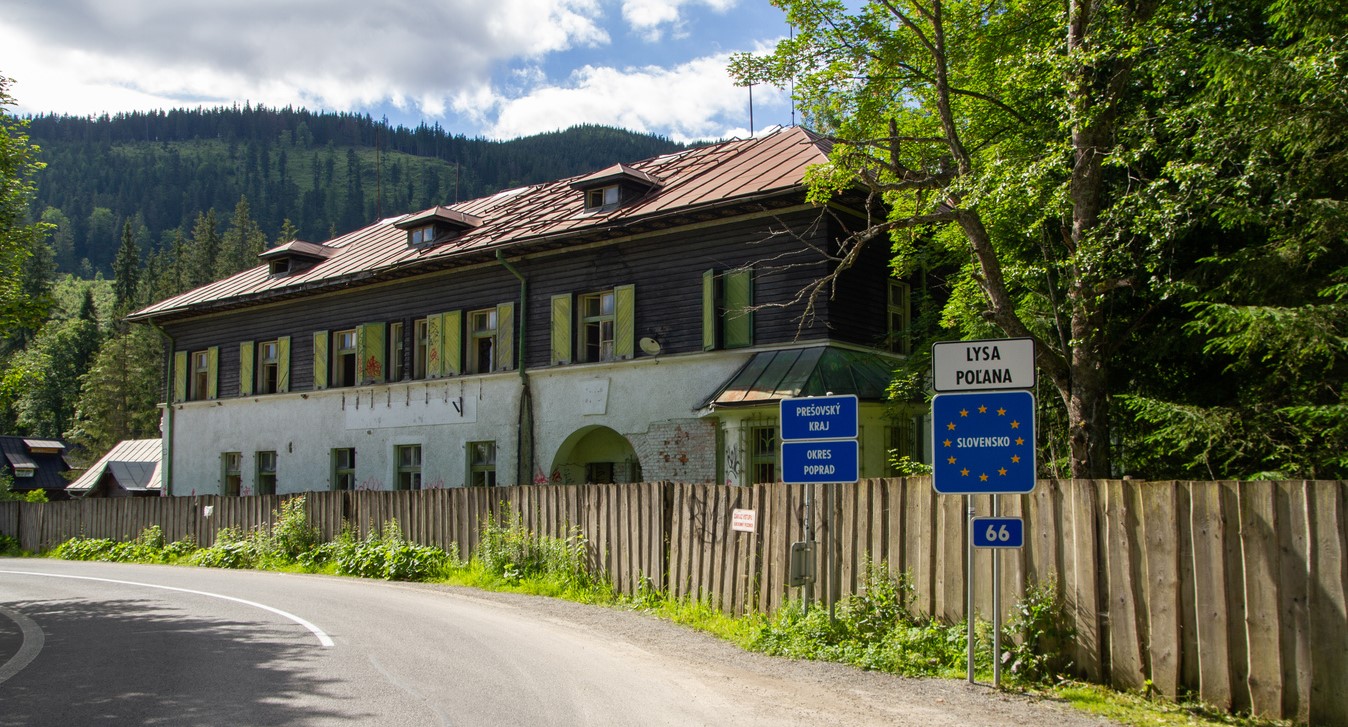
Poland introduced temporary controls on its border with Slovakia today and closed some crossing points completely as part of measures to restrict the entry of irregular migrants. It has also deployed the military to support the new border restrictions.
Similar measures have been taken by Austria and the Czech Republic on their borders with Slovakia, while Slovakia itself has today announced that it will introduce checks on its southern border with Hungary.
As members of the Schengen free-travel zone, Poland and Slovakia up to now had no checkpoints on their border. However, EU rules allow states to temporarily introduce controls “as a last resort measure in exceptional situations”.
Under Poland’s new measures, it will now be possible to cross the border only at eight road crossings, three railway crossings and 11 pedestrian crossings. That means many small local roads on the border are closed to traffic. Moreover, only EU citizens plus their spouses and children are allowed to cross the border on foot.
Random checks will be carried out for 10 days, until 13 October, with the possibility of further extension of up to two months, said the interior ministry.
It failed, however, to provide details of how the checks will work in practice, only saying that “persons or vehicles to be checked will be selected based on a risk analysis”. People crossing the border are advised to take their passports or identity cards with them.
💬 Minister @Kaminski_M_ w #MSWiA o wprowadzeniu tymczasowej kontroli granicznej na granicy ze Słowacją: Dziś poinformowałem o tym pisemnie Komisję Europejską. Zgodnie z kodeksem Schengen, w sytuacji nadzwyczajnej, państwo unijne może wprowadzić taką kontrolę. Zgodnie z procedurą… pic.twitter.com/C2YJZe7Ttz
— MSWiA 🇵🇱 (@MSWiA_GOV_PL) October 3, 2023
Last week, when the Polish prime minister first announced that Poland would introduce controls at the border with Slovakia, he indicated possible checks of “minibuses, vans, cars and buses that may be suspected of carrying illegal immigrants”.
At a press conference yesterday, interior minister Mariusz Kamiński revealed that Poland has already recently stepped up border controls, detaining 551 people in the past two weeks as a result. The ministry, however, has not responded to Notes from Poland’s questions on how the new controls will differ from those of the past two weeks.
Both the border guard and the defence ministry, however, have confirmed that the checks will be supported by the military.
“Soldiers will have the same powers as the border guard and will be able to carry out inspections, among other things,” announced defence minister Mariusz Błaszczak. “Both operational and territorial defence and engineering troops have been sent to the border.”
Germany’s interior minister wants to establish controls on the Polish and Czech borders to stem the arrival of thousands of irregular migrants through those two countries.
Currently, as all three are part of the Schengen zone, there are no border checks https://t.co/CZjzbwzXbz
— Notes from Poland 🇵🇱 (@notesfrompoland) September 23, 2023
The decision to step up controls came after Germany announced its own such measures on its borders with Poland and the Czech Republic due to the growing number of irregular migrants from outside the EU crossing them.
Many of those that come through Poland initially cross into the EU from Belarus, where Poland has also introduced tough new border measures, including a wall and electronic surveillance. But others come from the south through the Balkans and then via Hungary and Slovakia.
Speaking yesterday, Slovakia’s prime minister, Ľudovít Ódor, warned that “the process [of introducing border controls] initiated by Poland, which is in a pre-election period, will have a domino effect”, reports the Polish Press Agency (PAP). He instead called for a Europe-wide solution to migration challenges.
However, today Slovakia itself announced that it would introduce checks on its own southern border with Hungary.
Slovakia putting temporary controls on border with Hungary amid migration rise https://t.co/bGEsonwm1A pic.twitter.com/tORJQdZeDL
— Reuters (@Reuters) October 4, 2023
Kamiński, meanwhile, yesterday repeated the Polish government’s earlier rhetoric blaming EU policies for fuelling the migration crisis.
“The ease with which illegal migrants obtain the right to stay in the EU and the high social benefits are causing another influx,” said the interior minister. “This policy is irresponsible, unsuited to the challenges, and ideologically motivated.”
“The only appropriate response to the wave of illegal migration that is flooding Europe is a tough defence of the EU’s external borders and a change to the asylum system in the European Union,” he added.
Poland’s government has adopted a resolution blaming the EU for the renewed migration crisis on Lampedusa.
It says that Brussels’ plans to introduce a new system for relocating migrants „are an encouragement of human trafficking” https://t.co/dTD6XY1nPO
— Notes from Poland 🇵🇱 (@notesfrompoland) September 19, 2023
According to Slovak news service Novy Čas, however, the authorities in small Slovak border towns that have now seen their road connection to Poland closed are surprised by the decision.
Michal Didik, mayor of the village of Čirč, said that local residents do not encounter illegal migrants in the region. He also complained that the border closures will hit local tourism and businesses.
“I perceive it as [part of] an election campaign in Poland, in my opinion there was no reason to close these crossings, ” he said. Poland will hold parliamentary elections on 15 October and migration has emerged as a central campaign issue for both the government and opposition.
The head of Poland’s border guard, Tomasz Praga, revealed yesterday that, whereas in the whole of last year the Polish authorities detained a total of just over 100 people on the border with Slovakia, in September this year alone the figure was 900.
The opposition has accused the government of presenting itself as being anti-immigration while in fact overseeing a corrupt system that issued visas to 250,000 Asian and African migrants, and which led a deputy foreign minister to be sacked last week https://t.co/tKBjMBPtHe
— Notes from Poland 🇵🇱 (@notesfrompoland) September 8, 2023
Notes from Poland is run by a small editorial team and published by an independent, non-profit foundation that is funded through donations from our readers. We cannot do what we do without your support.
Main image credit: Maksym Kozlenko / Wikimedia (under CC BY-SA 4.0)

Alicja Ptak is senior editor at Notes from Poland and a multimedia journalist. She previously worked for Reuters.


